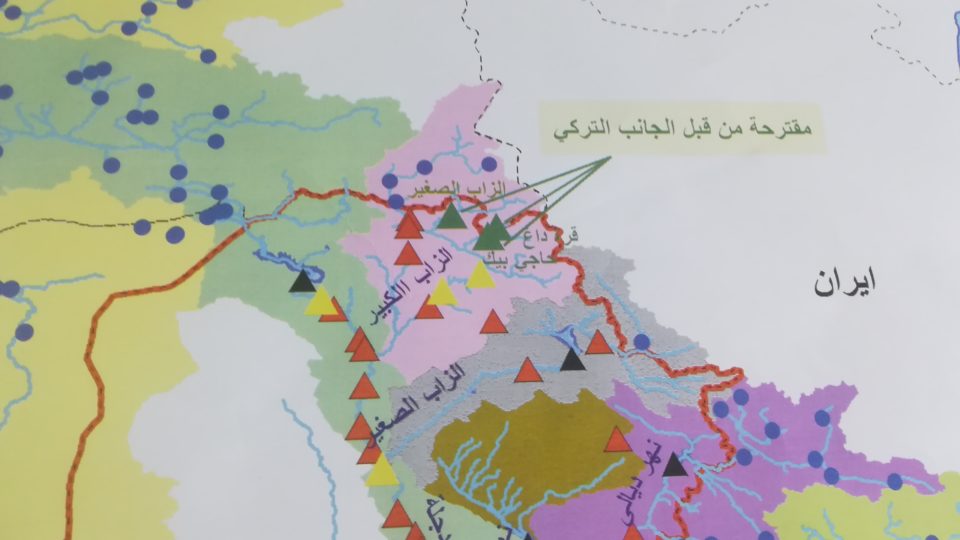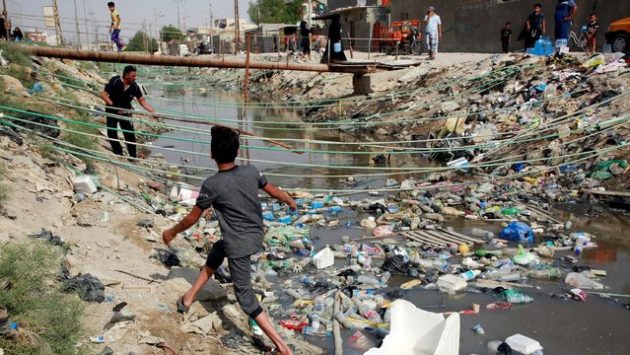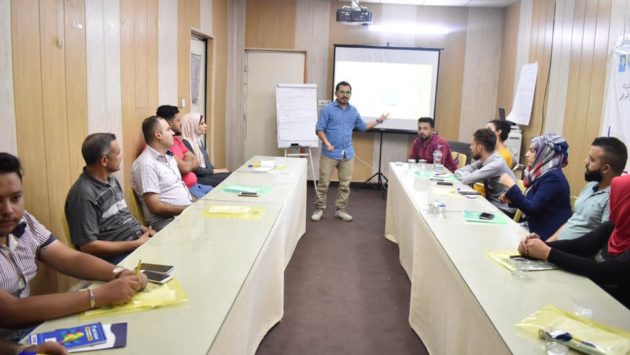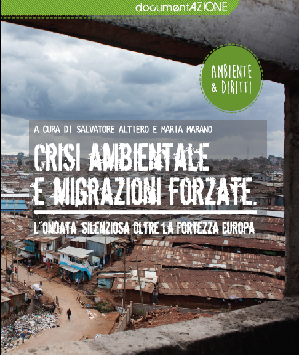Does the Memorandum of Understanding in water management between Turkey and Iraq guarantee Iraq its water rights?
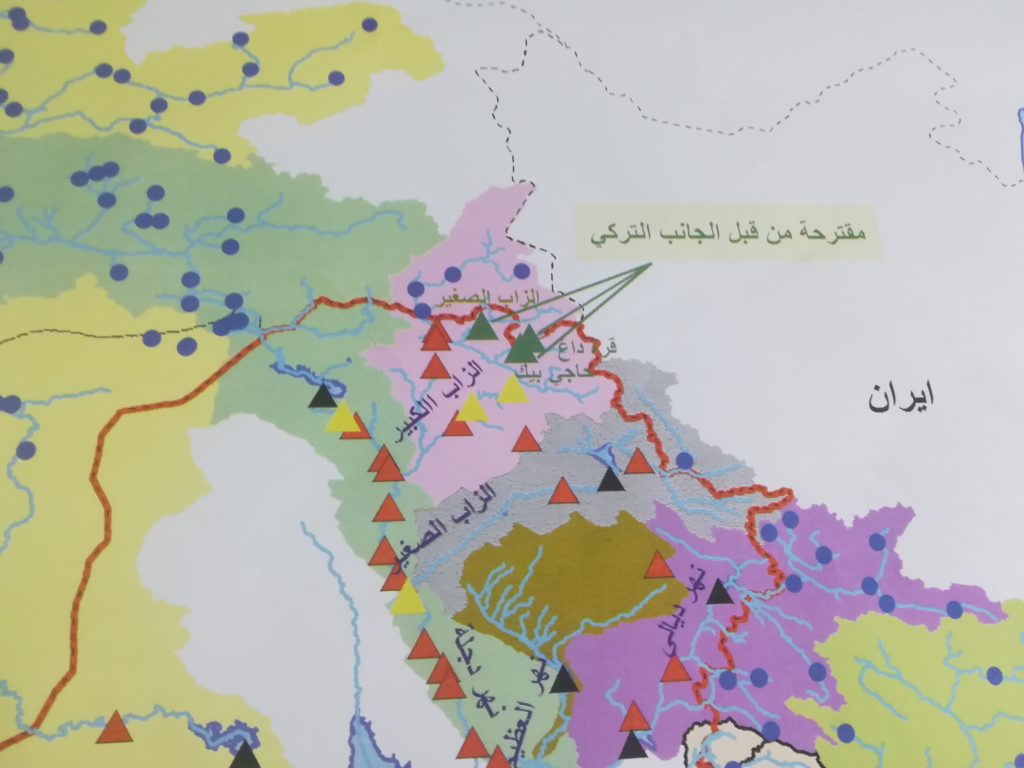
Preliminary reading of the memorandum of understanding signed with initials between Iraq and Turkey in the field of water 2019,
Ismaeel Dawood
Save the Tigris Campaign, April 2019
The Turkish Ministry of Forest and Water Affairs and the Iraqi Ministry of Water Resources have prepared a memorandum of understanding between them consisting of 12 articles. The MoU was jointly drawn up by the Ministry of Foreign Affairs and the Turkish Embassy in Baghdad, along with their Iraqi counterparts. Work on the memo appears to date back to the end of 2014 and continued in the years following. Some official letters are dated as late as August 2017; perhaps all of this occurred through formal and informal discussions. Whatever the case, it seems that the first sign of the memorandum and the initial letters came from the two ministries in early 2019, and that the memo is now at the ratification stage.[1] The Iraqi Ministry of Foreign Affairs has reported that Turkish President Erdogan has appointed a special envoy to negotiate with Iraq on the issue of water, and that the envoy is to visit Iraq soon.[2]
However, to date there has been no public discussion about the contents of this memorandum. As usual, the Iraqi negotiator is keen to keep it secret despite the need for an open public debate to ensure that this critical memorandum preserves Iraq’s rights and meets international standards.
The memorandum’s overarching concern is to establish a platform for cooperation between the two countries where both might benefit from each other’s experiences; the Iraqi negotiator seems to consider it a good agreement, perhaps even an achievement. Since the appearance of its first draft, Iraqi newspapers have reported positively on the memorandum, indicating that it ensures Iraq’s share of water in the Tigris and Euphrates rivers.[3] But, are we sure that this is in fact the case? Does this memorandum truly guarantee Iraq its right to a fair share of the waters of the Tigris and the Euphrates?
I am writing these observations in attempt to answer this important question, not to instigate an argument, but to offer a levelheaded critique aimed at reaching agreements that enhance Iraq’s water security and its relationship with neighbouring Turkey at the same time.
Notes on the text of the Memorandum of Understanding:
- It is notable that the memo leaked from private sources is available in Turkish and English but not in Arabic. It’s not yet clear whether the Iraqi side has insisted that the text be translated into Arabic, especially given that some terms and references must be highly precise so that the Iraqi negotiator and decision-maker in Baghdad can ensure that there is no disagreement on the interpretation of the text or on the used terms. I hope I am wrong and that there is an Arabic version of the memorandum, or how can it be presented clearly to our government or our distinguished parliamentarians?
In this memorandum, and in all other similar memorandums and agreements, it is crucial that the Iraqi decision-maker request that the text be written in Arabic, and that this text be used at all levels of negotiation, exactly as texts in English or Turkish are, before reaching the stage of signature or ratification.
- From its preamble to the last article, this memo is free of any reference to the relevant international standards and conventions, which confirms the Turkish position of continuing to deal with the Iraqi side in a special framework that is isolated from those recognized and accepted standards. The position of the Iraqi negotiator here is unclear: did he try to include a reference to international standards but did not succeed in his attempts, or he fail to raise the subject at all? What about the Convention on the Law of Non-Navigational Uses of International Watercourses from 1997, a convention Iraq willingly joined and long encouraged other countries to sign as well. This convention came into force in 2014 and was immediately binding on Iraq. Isn’t it disturbing that this memorandum is written within a framework that makes no explicit reference to relevant international standards, nor any previous agreements between the two countries? What is the basis on which its content was built?
- The preamble of the memorandum states that its aim is to “strengthen the friendly relations between Turkish and Iraqi people and to develop cooperation on water issues.” It goes on to recognize the importance of a sustainable development approach in the protection, improvement and utilization of water resources for the health and welfare of current and future generations, and it reminds us that the preservation of natural resources and the environment requires close scientific, technical and technological cooperation between the two countries. Article 1 emphasizes that such cooperation should be based on equality and mutual benefit: these are positive general principles. Article 2(a) emphasizes the need to cooperate in the management of water resources, specifically in “joint projects”, stating: “cooperation on joint projects on the water resources management in the Euphrates and Tigris shall further be developed.” It is worth asking why the development of cooperation is limited to “joint projects” and, more importantly, just what these joint projects are. We know that the dams in Turkey, especially the GAP project, the last of which is the Ilisu Dam on the Tigris River, are all Turkish projects that were established without consultation or coordination with Iraq. Hence, we ask where exactly are these so-called “joint projects”? We are now well aware that when the Turkish negotiator makes such a statement, he certainly has a specific goal and purpose in mind. The fact that he places this claim in Article 2, the most important paragraph in the text of the memorandum, representing as it does the core of the agreement, makes it vital for us to scrutinize the statement. This statement, and thus the memorandum in its entirety, appear to establish a legal framework which allows Turkey to implement policies, specifically the construction of new dams, that serve its own interests in the region. If agreed to, the memorandum would ensure that Turkey not only has the right to carry out its chosen projects, but now with full support from Iraq, who will be obliged to share in the costs and management of these new dams, which are located on Iraqi soil.
Memorandum of legislation to build three new Turkish dams:
- According to a map prepared by the Department of Planning and Follow-Up of the Iraqi Ministry of Water Resources,[4] Turkey has proposed the construction of three dams on the upper Zab and on one of its tributaries within the Iraqi border, in the province of Erbil in the Kurdistan Region of Iraq. They are as follows: the Karra Dag Dam, the Haji Bek Dam and the small Zab Dam (on one of the upper Zab tributaries. This name should not be confused with the small Zab River, which does not pass through Erbil). Turkey suggested that these dams be built in partnership with the Iraqi government and that they be managed jointly. The water reservoirs of these U-shaped dams extend from inside Iraq up to the common borders, entering Turkish territory near those borders. Turkey proposes that these hydroelectric dams be built by Turkish companies and that the electricity produced will go to the Iraqi side, especially the Kurdistan region. The Iraqi side seems to have been convinced by the Turkish plan: the Iraqi Minister of Water Resources, Mr. Jamal al-Adili, posted on his Facebook page that he conducted a reconnaissance visit to the three dam sites escorted by senior officials in the ministry in the Kurdistan Region of Iraq. Although the Iraqi water strategy wasn’t formally announced to the public, a summary of it has been published, and it concluded that there was no need for new giant dams in Iraq. Despite this, the memo seems to give the green light to the construction of these three dams, contrary to its earlier conclusion and long-term strategy.
Some may wonder just what Turkey’s interest might be in paying half the cost of these dams? Is it Turkish generosity? A respect for good neighborliness? The answer here, according to available information, lies in three basic points: 1) Turkey wants to run its own specialized companies to ensure shares in the Iraqi market, especially in water management which involves huge amounts of money; 2) Turkey has adopted a policy which uses dams for security purposes. The barriers created by the large reservoirs across the border prevent or limit the movement of opponents of the government, especially the armed PKK. These three dams and the sites identified by Turkey are among the dams designated for security purposes; and finally, 3) the Turkish negotiator wants to feed us from the flesh of our own bull, as the Arab proverb says. He shares in the management of dams within our territories, promising that these dams will be jointly operated and that we are ensured fair water quotas. This in turn reduces pressure on the operation of the new Turkish dams on the Tigris River, especially the dangerous Ilisu Dam, which the Turkish government announced its intention to operate in early June. Clearly the vague reference to “joint projects” are precisely these new dams. If the Iraqi negotiator expects coordination and collaboration on the management of other Turkish dams, then he has misunderstood and tumbled into a spiral of misleading terminology! If not, why does this MoU not explicitly address the Ilisu dam, or the dams of the GAP project on the Tigris and Euphrates rivers and their tributaries?
- The memorandum of understanding lacks any Turkish commitment to refrain from building more dams on the shared rivers — in particular, the Tigris River — without previous coordination with Iraq, and without studying the impact of such dams on Iraq and its water security as established in accordance with international standards. The memo is also free of any reference to coordination in the administration or operation of the Ilisu dam, nor is there an explicit promise not to construct Cizre Dam, intended for agricultural purposes which would be damaging to Iraq. Are we left to conclude that Turkey wishes to commit itself to coordination with Iraq only on dams and joint projects that have not yet been established?
- Point 2(b) concerns the modernization of irrigation techniques and methods, and refers to the potential role of Turkish companies. 2(c) refers to joint studies of the quality of drinking water, and again emphasizes the potential role of Turkish companies. 2(d) refers to joint flood control studies and projects, and point 2(g) discusses participation in the assessment of available hydrological stations and, if necessary, the construction of new stations. 2(e) refers to joint trainings, and 2(j) explains that the trainings will include dam management.
- Points 2(f) and 2(h) refer to the sharing of information and increasing the number of meetings with Syria. As Syria and Iraq tend to have aligned interests, a greater role for Syria in these negotiations is something that Turkey would like to avoid: an isolated Syria leads to a stronger Turkish position.
- Point 2(i) suggests that an invitation will be directed solely to Turkish companies for bids on water management and on the modernization of irrigation systems in Iraq. The repeated reference to “Turkish companies” in various paragraphs indicates that the memo opens the way for a large share for Turkish companies over the next five years, the duration of this agreement as stated in the memo.
Given
these observations, we have the right to ask whether the Iraqi negotiator
should accept such an agreement under the pretext that “a bad agreement is
better than no agreement”. Might a better approach be a serious review of
the Iraqi position, and the guarantee of an open dialogue with Turkey on the
public administration of the joint water file in accordance with established
international standards? The latter represents the safe way forward for the
Iraqi negotiator and decision-maker if he wishes to reach a fair and just
agreement, one which benefits both countries equally. My hope is that this
summary is a first step in larger, more inclusive, critical discussion of the
agreement itself and the wider issues involved.
[1] A Turkish parliamentarian told private sources that the memo will be presented to the Turkish parliament in the third or fourth week of April 2019
[2] The Baghdad Post, published on behalf of Mr. Nizar al-Khairallah, Deputy Foreign Minister of Iraq, on April 7, 2019, available at: https://www.thebaghdadpost.com/en/Story/38123/To-resolve-water-issues-Turkey-appoints-new-special-envoy-to-Iraq-FM
[3] See, for example, Alsumaria news published that “Iraq and Turkey sign MoU for the release of fair and equitable amounts of water”, December 2014, available at: https://www.alsumaria.tv/news/120053/
[4] The map is available from private sources from outside the ministry, but it has the stamp of the ministry and the name of the Department of Planning and Follow-up, and dates back to 2018 or 2017.
to read the memorandum in English and Turkish, click here.

